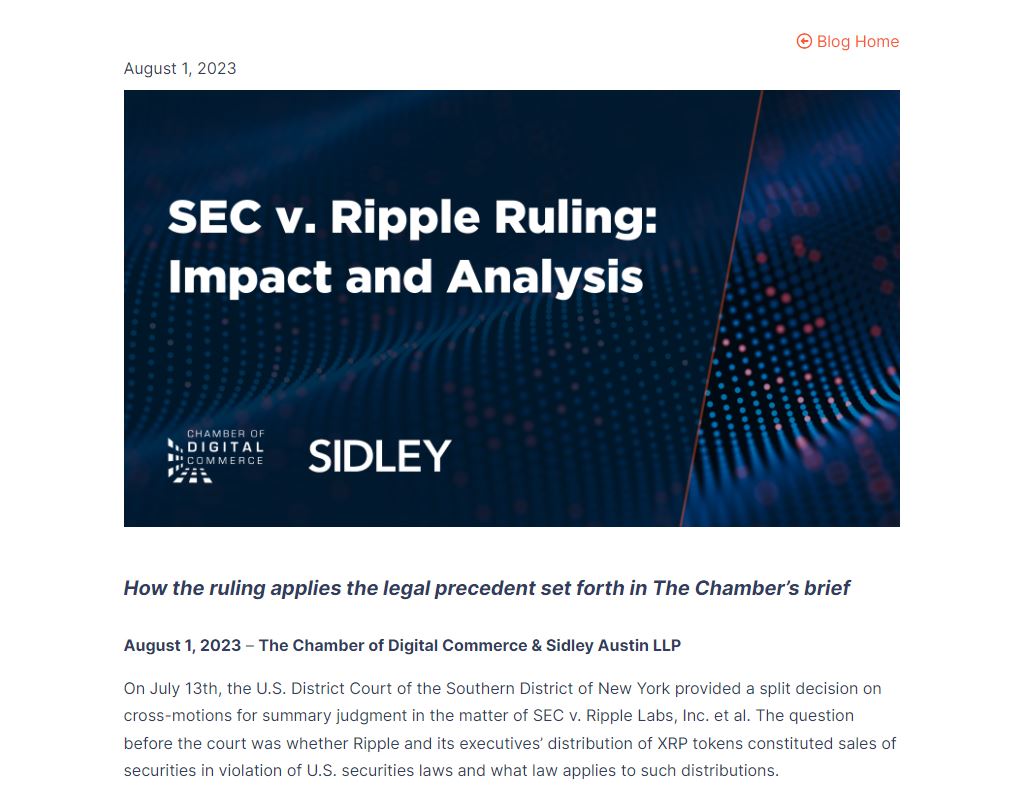On August 1st, the Digital Chamber of Commerce (CDC), an organization advocating for blockchain and digital assets in the United States, published a comprehensive report on the lawsuit filed by the U.S. Securities and Exchange Commission (SEC) against Ripple. The report titled “Ripple Decision: Impact and Analysis” examines the court’s decision and highlights its profound effects on the future of the crypto industry.
A Precedent-Setting Decision
According to the report, Judge Analisa Torres’ decision sets a vital precedent by distinguishing between an investment contract and the underlying asset referenced in the contract.
The report analyzes Torres’ categorization of Ripple’s XRP. It divides XRP token distributions into three categories: institutional sales, programmatic sales, and other distributions. To determine whether these distributions constitute an investment contract offer and sale, the Howey test was applied. Torres’ decision, which is considered a precedent in the crypto industry, followed this test.

Implications of the Ripple Case
The CDC expressed its satisfaction with the decision in support of Ripple. Perianne Boring, the founder and CEO of the CDC, emphasized the importance of the decision as a precedent for future legal encounters in the crypto industry.
Boring highlighted the significance of a level playing field in the digital asset sector and the CDC’s commitment to advocating for policies that support the United States’ leadership in the digital economy. While Judge Torres’ decision is a step towards rational crypto regulations, the CDC believes that definitive regulatory clarity can only be achieved through effective legislation by Congress.
The CDC acknowledges that numerous blockchain and digital asset regulation bills have been introduced in the U.S. House of Representatives and Senate; however, due to limitations imposed by the legislative calendar, there is uncertainty regarding the enactment of these bills.
Despite the challenges, the CDC continues to advocate for a comprehensive legal framework for digital assets and creates an enabling environment for the launch of digital asset products. In February, the CDC accused the SEC of exceeding its authority and unjustly labeling crypto assets as securities in a lawsuit against former Coinbase employees.

 Türkçe
Türkçe Español
Español










Smart contract for NFTS Proof of stake ethereum stakeholders XDC Web3 5G services in the world of technology POW services